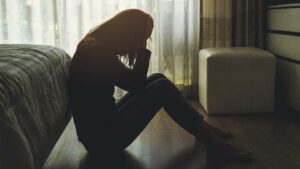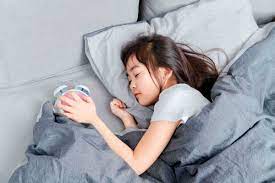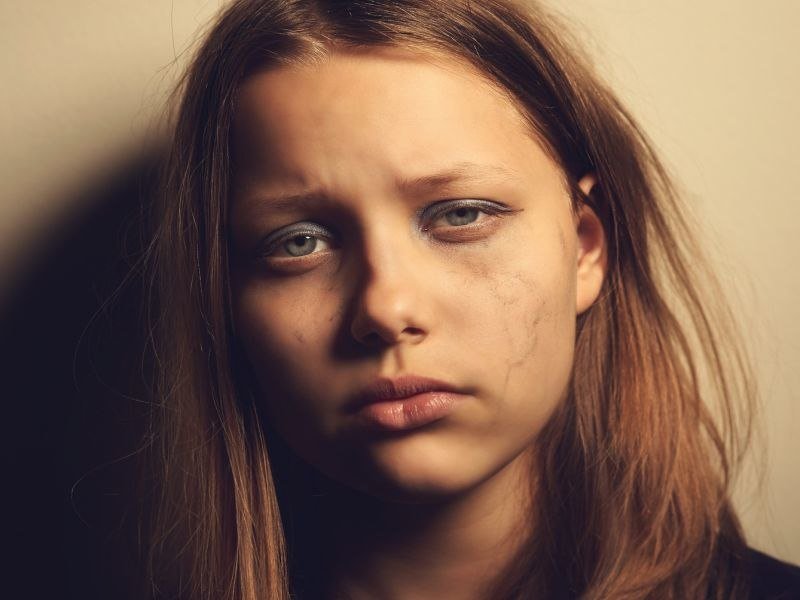Depression is a mental health disorder that affects millions of people each year. It can cause feelings of sadness, hopelessness, and worthlessness that can be difficult to overcome. If you think you may be suffering from depression, it is important to seek help from a professional. In this blog post, we will discuss the symptoms of clinical depression and provide tips on how to address them.
Contents
Defining Clinical Depression
 Clinical depression is basically the same as major depression, but it occurs in people who have a history of mental illness. This condition is described as a mental health disorder that causes a person to experience persistent feelings of sadness and loss of interest.
Clinical depression is basically the same as major depression, but it occurs in people who have a history of mental illness. This condition is described as a mental health disorder that causes a person to experience persistent feelings of sadness and loss of interest.
Moreover, studies suggest clinical depression is more common in women than men. Some experts believe this is because women are more likely to experience stressful life events and trauma than men. So, on average, women are more likely to suffer from clinical depression than men.
Clinical Depression Symptoms
It is important to identify clinical depression symptoms early. As this can help to address the issue before it becomes more severe. Here are some clinical depression symptoms for you to be aware of.
Common Symptoms
- Persistent sad, anxious, or “empty” mood
- Feelings of hopelessness, or pessimism
- Irritability
- Loss of interest or pleasure in hobbies and activities
- Decreased energy levels or fatigue
- Moving or talking more slowly than usual
- Feeling restless or having trouble sitting still
- Difficulty concentrating, remembering, or making decisions
- Difficulties with sleeping, including insomnia or sleeping too much
- Overeating or appetite loss
These symptoms are actually common and can be caused by other issues. And also, some people may experience only a few of these symptoms. However, the key is that these symptoms are persistent and significantly interfere with daily life activities.
Serious Symptoms

- Thoughts of suicide or self-harm
- Extreme changes in weight or appetite
- Sleep problems that don’t improve
- Loss of interest in activities that used to bring pleasure
- Problems concentrating, remembering details
Serious symptoms actually occur in a minority of people with clinical depression. However, if you experience any of these symptoms, it’s important to seek professional help. Untreated clinical depression is serious. If you are thinking about suicide or self-harm, get help immediately by calling a suicide hotline in your area.
It is essential not to take this condition lightly, thinking that it will simply go away on its own. If you’re feeling any of the symptoms above, please see a mental health professional as soon as possible.
Are There Any Warning Signs?
Warning signs are very often when it comes to clinical depression. It is not something that should be taken lightly. If you are feeling down for more than two weeks, and this includes a change in eating and sleeping habits, as well as a loss of interest in activities you once enjoyed, then it is time to seek professional help.
These symptoms can start off gradually, but they will eventually progress and get worse over time if not treated. Some of the warning signs include:
- Feeling hopeless, worthless, or helpless
- Losing interest in friends, family, and activities you once enjoyed
- Sleeping too much or not being able to sleep
- Experiencing changes in appetite or weight
- Moving or speaking more slowly than usual
- Feeling tired all the time
- Having difficulty concentrating or making decisions
- Having persistent aches or pains, headaches, or cramps that do not go away
- Thinking about death or suicide
These are some warning signs that cannot be ignored. If you or someone you know is experiencing any of these, please reach out for help. There are many resources available, and it is important to get professional help as soon as possible.
Clinical depression is a serious condition that should not be taken lightly. If you think you may be depressed, reach out to a professional for help.
Diagnosis For Clinical Depression
 A diagnosis is important if you think you may be clinically depressed. A diagnosis can help rule out other potential causes of your symptoms and give you a better understanding of what’s going on.
A diagnosis is important if you think you may be clinically depressed. A diagnosis can help rule out other potential causes of your symptoms and give you a better understanding of what’s going on.
There are two types of depression, major depressive disorder (MDD) and persistent depressive disorder (PDD). MDD is characterized by at least two weeks of a low mood or loss of interest in activities. PDD is a less severe form of depression that lasts for at least two years.
The method for diagnosis is the same for both types of depression. A doctor or mental health professional will ask you about your symptoms, thoughts, and behaviors. They may also give you a physical exam to rule out other potential causes of your symptoms. Those questions might include:
- Do you have any other medical conditions?
- How long have you been feeling this way?
- Do you take any medications that could be causing these symptoms?
- Do you have a family history of depression or other mental health disorders?
After ruling out other potential causes, the doctor will likely give you a depression screening. This is a series of questions that help to assess whether you have depression. So, with these numerous methods and questions, you will definitely find out if you are clinically depressed.
Treatment Options For Clinical Depression
If you’re diagnosed with clinical depression, there are a number of treatment options available to you. The most common and effective treatments are:
Antidepressant medication
These medications are primary suggestions for individuals with clinical depression. Antidepressants can take several weeks to work. And may need to be adjusted by your doctor before finding the right dose. In fact, it’s not uncommon for people to try a few different medications before finding one that works best for them. Some examples of antidepressants are:
- SSRIs (selective serotonin reuptake inhibitors)
- SNRIs (serotonin and norepinephrine reuptake inhibitors)
- Tricyclics
- MAOIs (monoamine oxidase inhibitors)
Although medications are the most common treatment for clinical depression, there are other options available. If you’re not comfortable taking medication or haven’t had success with them in the past. Then, talk to your doctor about other treatment options. Also, there are some side effects of such medications to manage clinical depression symptoms.
Psychotherapy or “talk therapy”

This is another common treatment option for clinical depression. It involves meeting with a mental health professional to discuss your thoughts, feelings, and behaviors. Therapists can help you understand your depression and teach you ways to manage it.
- Cognitive-behavioral therapy (CBT) is a type of psychotherapy that has been shown to be effective in treating clinical depression. CBT focuses on changing negative thinking patterns and behaviors that may be contributing to your depression.
- Interpersonal therapy (IPT) is another type of psychotherapy that may be used to treat clinical depression. IPT focuses on relationships and interpersonal issues that may be affecting your mood.
Depression is a serious condition that requires treatment. If you think you may be suffering from clinical depression, then you should try psychotherapy for the best results. You can contact Mantra Care for more information about how to get started with treatment.
Group Therapy
Group therapy is another treatment option that can be helpful for people with clinical depression. In group therapy, you meet with other people who are also dealing with depression. This can be a great way to share your experiences and learn from others who understand what you’re going through.
As the clinical depression symptoms noted earlier, group therapy can provide support and guidance that can be beneficial in managing depression.
If you’re interested in finding a group therapy program, you can ask your doctor or mental health professional for recommendations. You can also search online or look in your local community for groups that meet regularly.
Self-Care Tips
 This is often the most difficult task for someone suffering from clinical depression. Otherwise, depression can make it hard to take care of yourself, but it’s important to try. These include:
This is often the most difficult task for someone suffering from clinical depression. Otherwise, depression can make it hard to take care of yourself, but it’s important to try. These include:
Eat nutritious meals
Meals are often one of the first things to go when someone is depressed. It’s important to eat nutritious meals, even if you don’t feel like it. Because depression can make it hard to concentrate and have the energy to cook, consider keeping easy-to-prepare foods on hand.
- Fruits and vegetables
- Whole grains
- Lean protein
- Low-fat dairy
- Water
Exercise regularly
Exercise releases endorphins, which have mood-boosting effects. A moderate amount of exercise is the key to maintaining your mental health. Regular exercise can also help you sleep better, which is crucial for managing depression. In fact, one of the most common clinical depression symptoms is insomnia. If you’re not used to exercising, start slowly and build up gradually. Taking a brisk walk around your neighborhood is a good place to start.
Get enough sleep
 Depression can cause insomnia, so it’s important to get enough sleep. It is widely recommended that adults get seven to nine hours of sleep per night. Also, there are several things you can do to increase the chances of a good night’s sleep, such as:
Depression can cause insomnia, so it’s important to get enough sleep. It is widely recommended that adults get seven to nine hours of sleep per night. Also, there are several things you can do to increase the chances of a good night’s sleep, such as:
- Stick to a regular sleep schedule
- Create a relaxing bedtime routine
- Avoid working or using electronic devices in bed
Talk to your doctor if you’re having trouble sleeping. They can prescribe medication or recommend other treatments to enhance your sleep quality.
Limit alcohol intake
Alcohol is a depressant, so it can make your depression symptoms worse. If you drink alcohol, do so in moderation. This means no more than two drinks per day for men and one drink per day for women. Moreover, avoid drinking alcohol if you’re taking medication for depression.
Avoid drugs
Illegal drugs can worsen your depression symptoms and create new ones. They can also interact with any medications you’re taking for depression, which can be dangerous. If you’re struggling with drug addiction, get help from a professional treatment program.
Make time for hobbies
Doing things you enjoy can help relieve depression symptoms. Make time for hobbies that make you happy. This can be anything from reading and playing music to hiking and painting. Find something that relaxes and interests you, then make time for it every week.
Connect with loved ones
It’s important to stay connected with loved ones when you’re struggling with depression. They can provide support and understanding during difficult times. You may not feel like socializing, but spending time with loved ones can help you feel better. In fact, one study found that social support can be as effective as medication for treating depression.
There are many ways to get support from loved ones, such as:
- Talking to them about your depression symptoms
- Asking them to help you with self-care tasks
- Spending time with them doing activities you enjoy
Engage in positive self-talk
 Positive talk with yourself can help reduce depression symptoms. Depression can make you feel like you’re not good enough, but remind yourself that this isn’t true. Positive self-talk includes things like:
Positive talk with yourself can help reduce depression symptoms. Depression can make you feel like you’re not good enough, but remind yourself that this isn’t true. Positive self-talk includes things like:
- Complimenting yourself
- Practicing gratitude
- Setting realistic goals
- Focusing on your strengths
- Accepting your weaknesses
If negative thoughts start to creep in, counter them with positive ones. For example, if you think “I’m such a failure,” say to yourself “I am doing the best I can.”
Use these tips to help you recognize and address clinical depression symptoms. If your symptoms are severe or don’t improve with self-care then consider taking professional help. However, don’t forget that you are not alone in this battle. Depression is a common mental illness, but it is treatable.
Please remember these tips are not meant to be used as a diagnosis. If you think you might be suffering from clinical depression, please reach out to a mental health professional for help. They can guide you to an effective treatment for you that might include a combination of medication and therapy. Also, early treatment can help you get on the road to recovery.
Conclusion
To conclude, clinical depression symptoms can vary greatly from person to person. It is important to be aware of the symptoms and seek help if you or someone you know is suffering. With proper treatment, many people with clinical depression can lead happy and fulfilling lives.
For more information, please contact MantraCare. Depression is a mental illness characterized by persistent feelings of sadness, hopelessness, and loss of interest in daily activities. If you have any queries regarding Online Depression Counseling experienced therapists at MantraCare can help: Book a trial Depression Therapy session


